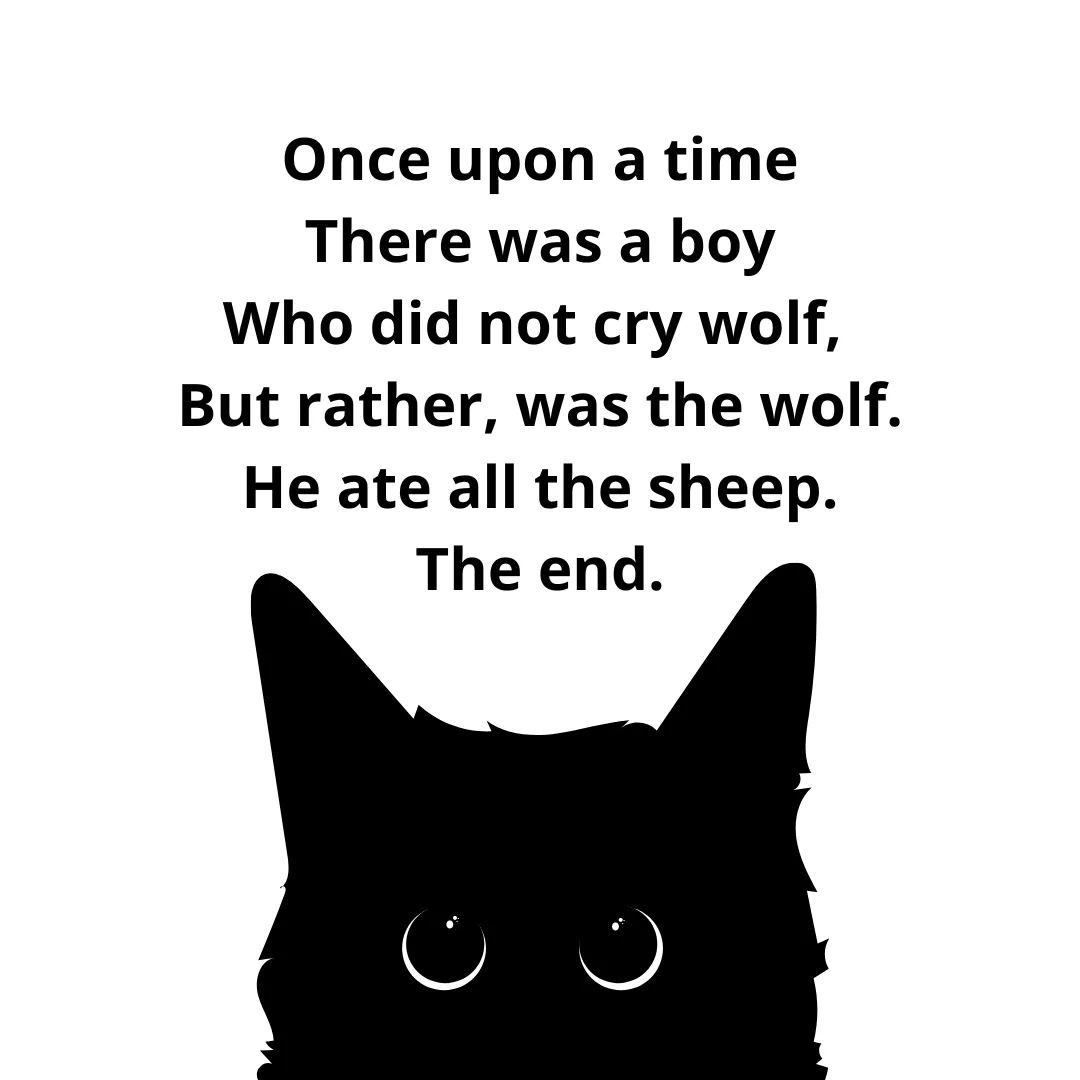
ww[Image created in CANVA using free elements.](www.canva.com)
Once upon a time
There was a boy
Who did not cry wolf,
But rather, was the wolf.
He ate all the sheep.
The end.
Once upon a time…
Samuel knew the importance of a good opening. In fact, he imagined them as an artform, and had placed emphasis on studying the power of words on human behaviour. He was no psychologist, but he certainly understood the Pavlovian effect of a well spoken phrase. He would often frequent bars where his lines of verse were carefully crafted – and, with a confidence that bordered on arrogance, he would read his audience and pluck just the right words, meticulously placing them into the right order; oh yes, Samuel knew the importance of a good opening and at times he would dalliance with crudeness or imply romance, and depending on the cut of dress, he would pursue a far more juvenile quip – much like, ‘Once upon a time’. Yet, that perfectly formed prepositional phrase was one that Samuel had never uttered, but there must have been a time when he felt something more than an urge, and then a quiver, and then a release and, ‘It’s late’, and then the happy ending unlike any the princess imagined in those old fairy stories.
There was a boy…
And the boy certainly appreciated irony, as the clock approached midnight, Samuel rolled onto his side and made his declaration, ‘It’s late’. And he’d leave with both of his shoes. The next morning Samuel would wake and start his day with cereal; he’d go for a run; he’d shower. He was disciplined in his approach to his routine, and he’d be at work by nine. He’d spend his day inputting data and sending emails and nonchalant eating his lunch in the staff tea room. On the surface, he gave the impression that he was in complete control. He maintained a clean shaven upper lip and nothing about the mundanity of his conversations would declare anything other than self-control.
Who did not cry wolf…
As far as literary tropes go then, it would be easy for Samuel to write his own desperation into his evenings. It would be easy for him to cry himself to sleep. It would be easy for him to imagine a tear running down his cheek, and to curl up into a ball, clasping the yellow soles of his feet. But, Samuel was indifferent to his lack of emotional connections and at having never been in a relationship. The tears, if indeed they were to pour forth uncontrollably, were not to be shed by him – for the wolf, with no need to dress in sheep’s clothing, would not and did not cry.
But rather, was the wolf.
That night he dressed with intent. The wolf would hunt. The flirtatious conversations that would unfold that evening would be predictable; they always noted his dark eyes. They would stare into them, and touch his arm, and say how brown they were. If only they had said, ‘Oh, how big they are’, might they have known, or would they have still chanced to dance with the pretence of love?
He ate all the sheep.
Samuel, less concerned with a denouement seemed instead to be fixated on cyclical structures. His fairy tale was not so much over, but moving into its next progression. He rolled out of a bed which was not his own; unapologetic but feigning intent that he would call. He did not pause to notice the satin sheets, or the hopeful smile that lingered even after he’d left the room. Guilt was not consumed by the boy, and of course, he did not recognise that his breakfast, only hours away, would be the remnants of roast lamb.
The end.
It was the end, then, so far as it was possible to declare it.
